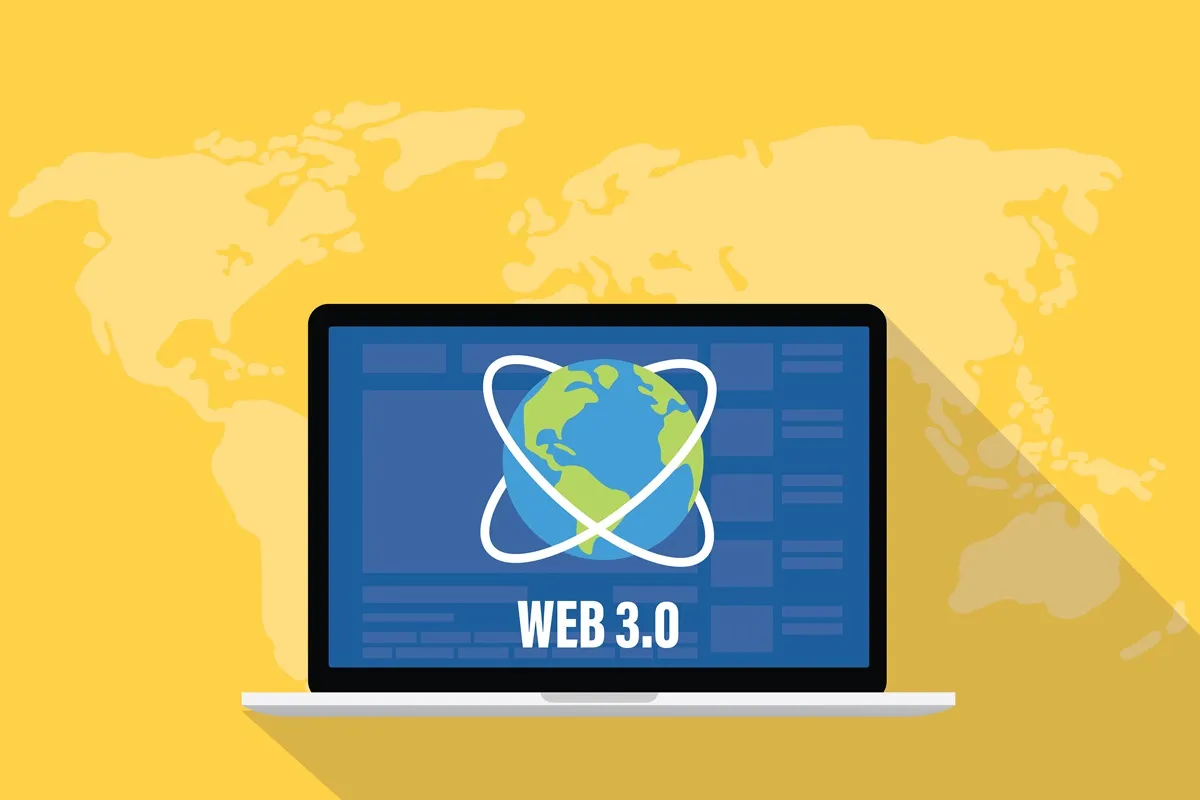The internet has undergone a transformative journey from its inception to today. Web3, or the “third iteration” of the web, promises to revolutionize the way we interact with digital content, own our data, and engage in decentralized ecosystems.
This blog will explore the profound impact Web3 could have on the future of the internet.
The Promise of Web3
Decentralization
One of the fundamental aspects of Web3 is its decentralized nature. Unlike Web2, where platforms control your data, Web3 leverages blockchain technology to allow users to own and control their own information.
Data will no longer be stored on centralized servers but rather distributed across a blockchain, making it less susceptible to censorship and hacking.
Blockchain Technology
Blockchain serves as the backbone of Web3, enabling a trustless and permissionless ecosystem where transactions and interactions are verifiable, secure, and immutable.
Whether it’s cryptocurrencies, NFTs, or smart contracts, blockchain plays a pivotal role in ensuring transparent and decentralized interactions.
Ownership and Tokenization
Web3 introduces the concept of tokenization, allowing digital assets like art, music, and real estate to be represented as tradable tokens on the blockchain.
This enables users to truly own their digital goods and even sell or trade them on open markets.
Censorship Resistance
With Web3, users won’t have to rely on platforms like Facebook or YouTube to distribute their content. Data and content will live on decentralized platforms, ensuring creators can maintain ownership and control over their work, even if they leave a specific platform.
How Web3 Will Change the Internet
Empowering Users
Web3 will drastically change how users interact with the internet by providing more control over personal data. Today, tech giants gather massive amounts of user information for targeted advertising.
In Web3, individuals can decide what data to share and even monetize their own data through tokenized interactions.
Economic Impact
The emergence of the token economy in Web3 will allow users to receive tokens for their online activities, whether it’s content creation, social interactions, or gaming.
These tokens can grant users voting rights in decentralized communities or ownership stakes in platforms, shifting the economic control from corporations to users.
Decentralized Applications (dApps)
Web3 will enable the development of decentralized applications (dApps) that run on blockchain technology.
Blockchain’s Future: Industries Ready for Big Changes
Unlike traditional apps, dApps don’t rely on central servers, ensuring they are more secure, transparent, and resistant to censorship.
Single Sign-On with Blockchain
Instead of using multiple logins across different platforms, Web3 allows users to have a single digital identity through blockchain.
This system would provide greater privacy and security since users won’t need to share sensitive information with every service they use.
Key Areas of Impact
Data Ownership and Privacy
In Web2, large corporations own and control most user data, using it for targeted advertising and other monetization strategies. Web3 shifts this power to users through decentralized systems where individuals have control over their own data.
With the help of blockchain and self-sovereign identities, users can decide what information to share and how it will be used.
This could lead to a new era of privacy-centric internet usage, where data isn’t just a commodity controlled by tech giants.
Economic Models and Tokenization
Tokenization in Web3 introduces new economic models where digital assets like art, content, and even data can be tokenized and traded.
This has broad implications for industries like real estate, intellectual property, and even social media.
For example, content creators can monetize their work directly through NFTs (Non-Fungible Tokens) or cryptocurrencies, without relying on third-party platforms like YouTube or Instagram, which currently take a large percentage of profits.
Decentralized Finance (DeFi)
DeFi is one of the most talked-about applications of Web3.
It allows for financial services such as lending, borrowing, and trading to occur on decentralized platforms without the need for traditional banks or intermediaries.
DeFi democratizes financial systems, offering access to anyone with an internet connection, bypassing the limitations of the traditional banking system.
Decentralized Autonomous Organizations (DAOs)
Web3 also introduces the concept of DAOs. These are organizations run on blockchain where governance is decentralized and decisions are made collectively by token holders.
DAOs can operate without a traditional management hierarchy, and decisions about the organization are made through smart contracts, allowing for transparency and democratization in businesses and communities.
Content Ownership and Censorship Resistance
On current platforms like YouTube and Instagram, creators are at the mercy of platform rules and algorithms. Web3 brings in censorship-resistant platforms where users retain full ownership of their content, and their work isn’t subject to arbitrary platform decisions.
If creators leave a platform, they can take their followers, reputation, and content with them thanks to blockchain, ensuring that the platform cannot restrict or remove their content arbitrarily.
Gaming and Virtual Worlds
The gaming industry is set to undergo a major transformation with Web3, where in-game assets can be tokenized and traded outside of the game itself.
Players can now have full ownership of their digital goods, and if they stop playing, they can trade or sell these items on decentralized markets.
This could pave the way for metaverse-like experiences, where virtual and physical worlds are intertwined, and economies are created within virtual environments.
Infrastructure and Decentralized Cloud
Web3 could revolutionize the infrastructure of the internet itself. Instead of relying on centralized cloud service providers like Amazon Web Services, Web3 could use decentralized networks to store and process data.
This could reduce the risk of data breaches, increase security, and offer greater resilience by spreading data across multiple nodes.
Trust and Transparency
Web3’s blockchain technology enables trustless systems where users don’t need to rely on intermediaries to verify the authenticity of transactions or information.
This transparency could lead to new levels of accountability, especially in sectors like supply chain management, voting systems, and digital identity.
Challenges and Limitations
Despite its potential, Web3 is still in its early stages, and there are several challenges that need to be addressed for it to gain mass adoption:
Technical Barriers
The current Web3 ecosystem requires users to understand blockchain technology and manage their private keys, which can be complex for non-technical users. Improving user experience and simplifying access will be key to widespread adoption.
Scalability
Blockchain networks, particularly Ethereum, currently face scalability issues, with high transaction costs and slower processing times.
Layer 2 solutions are being developed to address these issues, but Web3’s global adoption will require significant infrastructure improvements.
Regulatory Concerns
As Web3 decentralizes traditional systems, it raises questions about regulation, taxation, and data protection laws. Governments will need to adapt to the new decentralized economy while ensuring consumer protection.
Conclusion
Web3 represents a monumental shift in how we perceive and use the internet.
By decentralizing control and providing greater autonomy to users, it has the potential to create a more secure, transparent, and user-centric web.
While there are still hurdles to overcome, the future of the internet with Web3 looks promising, ushering in an era of true digital ownership and innovation.



